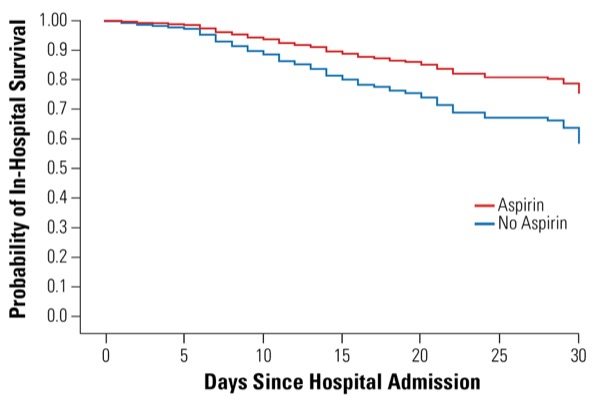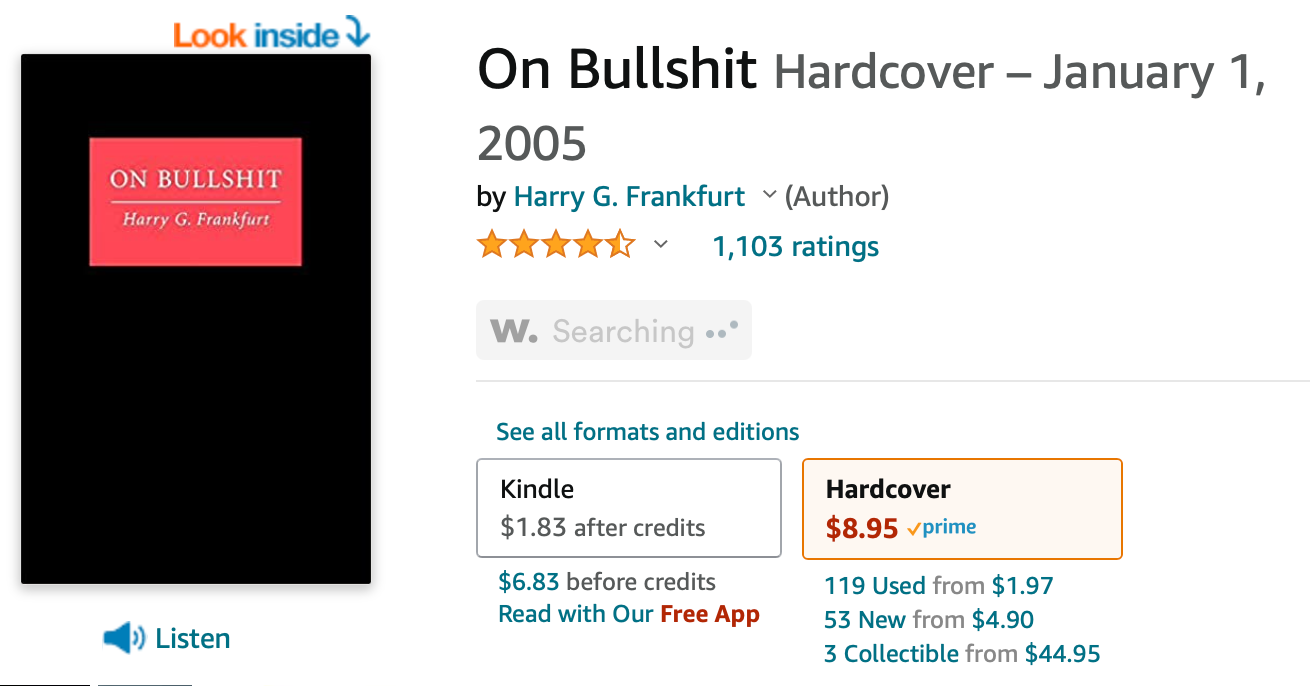Aspirin - is there anything it can't do?
-
Aspirin Reduces by Nearly Half the Need For Mechanical Ventilation for COVID-19 Patients
Patients hospitalized with COVID-19 and taking aspirin were nearly half as likely to require mechanical ventilation as those with COVID-19 not taking the drug, according to a retrospective, observational cohort study of adult patients.
The patients were admitted to multiple hospitals in the United States between March 2020 and July 2020.
The study’s principal investigator, Jonathan Chow, MD, an assistant professor of anesthesiology and critical care medicine at George Washington University, in Washington, D.C., said: “At the beginning of the pandemic, in March and April of 2020, my colleagues and I observed that all these COVID patients in the intensive care unit began to develop excess clot formation and complications related to blood clots and microclot formation throughout the body.”
Numerous autopsy studies from last spring showed these patients had activation of platelets throughout the body and an excessive number of precursors to platelets, according to Chow. “That got us thinking, ‘Why don’t we start using an antiplatelet medication, such as aspirin, to treat these patients?’” he said. “Aspirin has been studied extensively in cardiovascular disease to prevent clot formation, and it is widely available and inexpensive.”
The investigators reviewed the charts of 412 patients, of whom 76.3% did not receive aspirin and the remainder received aspirin within 24 hours after admission or for seven days or more prior to admission (primarily for heart disease).
After adjusting for eight confounding variables including demographics and comorbidities, aspirin tended to provide a protective effect and was independently associated with a 44% decreased risk for mechanical ventilation, a 43% reduced risk for ICU admission and a 47% decrease in hospital mortality (Figure).

In addition, there were no differences in major bleeding or overt thrombosis between the groups. The reason for not observing a lower rate of the latter may be the low number of reported events in each group or reporting bias from avoidance of diagnostic imaging.
“The results of the study do not really surprise us because we know that COVID causes excess clot formation and we know that aspirin is a very potent blood thinner,” Chow said. “So when you have a disease that causes clots and a medication that thins your blood, that may lead to the protective effects that we found.”
A disadvantage of giving aspirin to hospitalized COVID-19 patients, however, is the definite risks of a blood thinner, including a significantly increased risk for internal bleeding.
“If the ongoing randomized controlled trials can prove causation between aspirin and improved outcomes, and corroborate our findings, this would be a huge win for those people looking to reduce some of the risks of some of the most devastating effects of COVID-19,” Chow said.
Peter Papadakos, MD, the director of critical care medicine at the University of Rochester in New York, found the study results unexpected because previous research showed the benefit of aspirin in treating acute respiratory distress syndrome (ARDS). “I am a firm believer that an aspirin a day keeps the doctor away,” he said. “Aspirin, which has been around for [more than a hundred] years, offers some positive anti-inflammatory effects in ARDS.”
Aspirin is also an anticoagulant. “One of the unique features of COVID-19 that we did not know early on is the microemboli that occur in lung tissue,” said Papadakos, noting that the anti-inflammatory and anticoagulant properties of aspirin make for an “ideal combination for COVID-19 therapy.”
Other advantages of aspirin as a treatment for COVID-19 are that it is easily available worldwide, is very inexpensive, has a highly impressive safety profile and is already taken by many people prophylactically, said Papadakos, who was not part of the study.
-
Aspirin Reduces by Nearly Half the Need For Mechanical Ventilation for COVID-19 Patients
Patients hospitalized with COVID-19 and taking aspirin were nearly half as likely to require mechanical ventilation as those with COVID-19 not taking the drug, according to a retrospective, observational cohort study of adult patients.
The patients were admitted to multiple hospitals in the United States between March 2020 and July 2020.
The study’s principal investigator, Jonathan Chow, MD, an assistant professor of anesthesiology and critical care medicine at George Washington University, in Washington, D.C., said: “At the beginning of the pandemic, in March and April of 2020, my colleagues and I observed that all these COVID patients in the intensive care unit began to develop excess clot formation and complications related to blood clots and microclot formation throughout the body.”
Numerous autopsy studies from last spring showed these patients had activation of platelets throughout the body and an excessive number of precursors to platelets, according to Chow. “That got us thinking, ‘Why don’t we start using an antiplatelet medication, such as aspirin, to treat these patients?’” he said. “Aspirin has been studied extensively in cardiovascular disease to prevent clot formation, and it is widely available and inexpensive.”
The investigators reviewed the charts of 412 patients, of whom 76.3% did not receive aspirin and the remainder received aspirin within 24 hours after admission or for seven days or more prior to admission (primarily for heart disease).
After adjusting for eight confounding variables including demographics and comorbidities, aspirin tended to provide a protective effect and was independently associated with a 44% decreased risk for mechanical ventilation, a 43% reduced risk for ICU admission and a 47% decrease in hospital mortality (Figure).

In addition, there were no differences in major bleeding or overt thrombosis between the groups. The reason for not observing a lower rate of the latter may be the low number of reported events in each group or reporting bias from avoidance of diagnostic imaging.
“The results of the study do not really surprise us because we know that COVID causes excess clot formation and we know that aspirin is a very potent blood thinner,” Chow said. “So when you have a disease that causes clots and a medication that thins your blood, that may lead to the protective effects that we found.”
A disadvantage of giving aspirin to hospitalized COVID-19 patients, however, is the definite risks of a blood thinner, including a significantly increased risk for internal bleeding.
“If the ongoing randomized controlled trials can prove causation between aspirin and improved outcomes, and corroborate our findings, this would be a huge win for those people looking to reduce some of the risks of some of the most devastating effects of COVID-19,” Chow said.
Peter Papadakos, MD, the director of critical care medicine at the University of Rochester in New York, found the study results unexpected because previous research showed the benefit of aspirin in treating acute respiratory distress syndrome (ARDS). “I am a firm believer that an aspirin a day keeps the doctor away,” he said. “Aspirin, which has been around for [more than a hundred] years, offers some positive anti-inflammatory effects in ARDS.”
Aspirin is also an anticoagulant. “One of the unique features of COVID-19 that we did not know early on is the microemboli that occur in lung tissue,” said Papadakos, noting that the anti-inflammatory and anticoagulant properties of aspirin make for an “ideal combination for COVID-19 therapy.”
Other advantages of aspirin as a treatment for COVID-19 are that it is easily available worldwide, is very inexpensive, has a highly impressive safety profile and is already taken by many people prophylactically, said Papadakos, who was not part of the study.
@george-k said in Aspirin - is there anything it can't do?:
Patients hospitalized with COVID-19 and taking aspirin were nearly half as likely to require mechanical ventilation as those with COVID-19 not taking the drug
Since there was no random selection of those who receive aspirin, it could be a meaningless correlation, no?
-
@george-k said in Aspirin - is there anything it can't do?:
Patients hospitalized with COVID-19 and taking aspirin were nearly half as likely to require mechanical ventilation as those with COVID-19 not taking the drug
Since there was no random selection of those who receive aspirin, it could be a meaningless correlation, no?
-
-
@george-k said in Aspirin - is there anything it can't do?:
" retrospective, observational cohort study of adult patients."
In other words,
bullshitinitial evidence that needs to be confirmed by randomized trials before we draw any conclusions.@klaus said in Aspirin - is there anything it can't do?:
In other words, bullshitinitial evidence that needs to be confirmed by randomized trials before we draw any conclusions.
Of course.
A fun read:

-
https://www.medicalnewstoday.com/articles/aspirin-may-reduce-deaths-in-severe-covid-19
Aspirin may reduce deaths in severe COVID-19
Many people who are hospitalized with COVID-19 have excessive blood clotting, which can be fatal.
A pilot study of hospitalized patients suggests that a low dose of the anticoagulant aspirin could reduce the need for mechanical ventilation and admission to intensive care, as well as the risk of dying.
A larger clinical study will be necessary to confirm the findings.
-
Down here, standard therapy upon admission was to start the patient on a blood thinner, usually Plavix.
Of course, I guess they could have asked people were they vaccinated, especially before a vaccine became widely available. Maybe they could have based therapeutic medicine on intentions...

-
I believe somebody around here has repeatedly mentioned that COVID is a vascular disease?